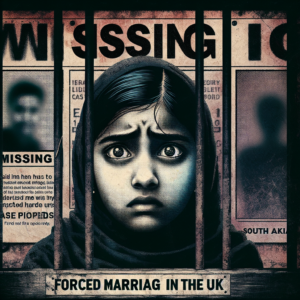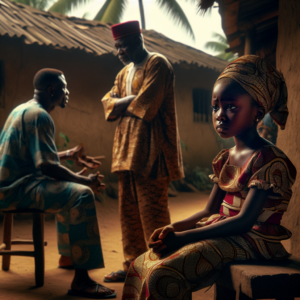The Challenges of Early Marriage in Egypt: Breaking the Cycle
Introduction
Early marriage is a deep-rooted issue that continues to persist in many parts of the world, including Egypt. Defined as the marriage of individuals below the age of 18, early marriage has severe consequences on the lives of young girls, their families, and society as a whole. It disrupts education, perpetuates poverty, and poses serious health risks for the individuals involved. In this article, we will explore the challenges of early marriage in Egypt and discuss strategies to break the cycle.
Challenges of Early Marriage in Egypt
1. Limited access to education: One of the key challenges of early marriage in Egypt is the limited access to education for young girls. When girls get married at a young age, they are often forced to drop out of school, depriving them of the opportunity to gain knowledge and skills necessary for their personal and professional development. By denying their education, early marriage perpetuates a cycle of illiteracy and ignorance, limiting their potential to contribute to society.
2. Impact on health: Early marriage exposes young girls to several health risks. They are more likely to face complications during pregnancy and childbirth due to their bodies being physically underdeveloped. This puts them at a higher risk of maternal mortality and child mortality rates. Moreover, early marriage often leads to a lack of reproductive health knowledge and access to family planning methods, resulting in high fertility rates and increased poverty.
3. Economic vulnerability: Early marriage has a detrimental impact on the economic status of young girls and their families. In most cases, these girls are not equipped with the necessary skills or education to find stable employment. Consequently, they become economically dependent on their husbands or families, perpetuating a cycle of poverty. This economic vulnerability also limits their ability to make decisions and assert their rights, further perpetuating gender inequality.
4. Psychological impact: Early marriage places a significant psychological burden on young girls. They are forced into adult roles and responsibilities before they are emotionally prepared, which can lead to increased stress, depression, and anxiety. These psychological challenges can affect their overall well-being, hindering their personal growth and development.
5. Social stigma: Early marriage in Egypt is deeply rooted in societal norms and traditions. It is often seen as a way to protect girls’ honor and preserve family reputation. However, this societal pressure contributes to the cycle of early marriage, making it difficult to challenge or address the issue. The social stigma associated with unmarried girls in their late teens further perpetuates the practice of early marriage.
Breaking the Cycle
1. Education and awareness: One of the key strategies to break the cycle of early marriage in Egypt is through education and awareness campaigns. These campaigns should target both young girls and their families, emphasizing the importance of education and the detrimental consequences of early marriage. By providing access to quality education, promoting scholarships, and ensuring safe and supportive learning environments, young girls can develop the knowledge, skills, and confidence necessary to delay marriage.
2. Legal reforms: Strengthening and enforcing existing laws against early marriage is crucial to breaking the cycle. Egypt has already raised the minimum age of marriage to 18, but it lacks effective implementation and enforcement mechanisms. It is essential to ensure that laws are enforced consistently and that perpetrators of child marriage are held accountable.
3. Access to reproductive health services: Providing young girls with access to reproductive health services is vital to breaking the cycle of early marriage. By ensuring comprehensive sex education, access to contraception, and safe abortion services where legal, young girls can make informed decisions about their sexual and reproductive health, empowering them to delay marriage and plan their futures.
4. Empowering women and girls: Empowering women and girls is a critical element in addressing the issue of early marriage. By promoting gender equality, providing economic opportunities, and supporting girls’ education, we can challenge the patriarchal norms that perpetuate early marriage. This can be achieved through vocational training programs, microcredit projects tailored to women, and initiatives that promote gender-inclusive policies and practices.
5. Collaborative efforts: Breaking the cycle of early marriage requires a multi-stakeholder approach. Governments, civil society organizations, religious leaders, and communities must work together to address the root causes of early marriage and develop comprehensive solutions. By collaborating, sharing best practices, and raising public awareness, we can create a supportive environment that empowers young girls and breaks the cycle of early marriage.
FAQs
Q: Why does early marriage persist in Egypt?
A: Early marriage persists in Egypt due to deeply ingrained societal norms, gender inequality, poverty, and lack of access to education.
Q: What are the consequences of early marriage on girls’ health?
A: Early marriage exposes girls to health risks, including complications during pregnancy and childbirth, higher maternal and child mortality rates, and limited access to reproductive health services.
Q: How can education help break the cycle of early marriage?
A: Education plays a crucial role in breaking the cycle of early marriage by providing girls with knowledge, skills, and confidence to delay marriage, pursue higher education, and secure stable employment.
Q: How can societies challenge the social stigma surrounding unmarried girls in their late teens?
A: Societies can challenge the social stigma surrounding unmarried girls by promoting gender equality, emphasizing the importance of education, and fostering a supportive environment that celebrates girls’ potential and aspirations.
Q: Why is it important to involve multiple stakeholders in addressing early marriage?
A: Involving multiple stakeholders, including governments, civil society organizations, religious leaders, and communities, is important to develop comprehensive solutions and create a supportive environment that empowers young girls. Collaboration ensures that efforts to address early marriage are sustainable and have a lasting impact.
Conclusion
Early marriage remains a significant challenge in Egypt, perpetuating a cycle of poverty, illiteracy, and gender inequality. However, by implementing comprehensive strategies that focus on education, legal reforms, access to reproductive health services, and women’s empowerment, we can break the cycle and create a better future for young girls in Egypt. It is only through collective efforts that we can promote gender equality, protect the rights of young girls, and facilitate their successful transition into adulthood.






















